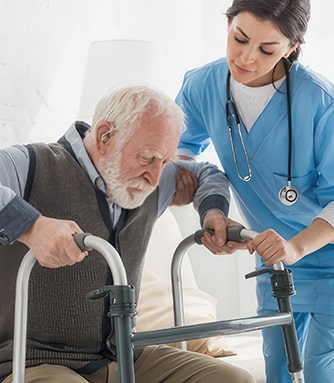WellSky® Long-Term Care (formerly Experience Care) optimizes resident care, streamlines operations, and ensures regulatory compliance for long-term care facilities. User-friendly interfaces and robust analytics empower providers to deliver superior patient experiences while enhancing organizational efficiency.
Optimize resident care, streamline operations
Assisted &
Independent Living
Skilled
Nursing
Continuing
Care
Intermediate
Care
A comprehensive and scalable long-term care software solution
WellSky Long-Term Care is an all-in-one long-term care software solution designed for long-term and senior care management, including skilled nursing, independent and assisted living facilities, intermediate care, and continuing care retirement communities. The solution helps increase operational efficiencies and improve financial performance, with seamless data exchange and a robust integrated solution. It’s built on a single database, so WellSky allows organizations to expand and add new facilities quickly while providing data across the entire organization in real time. And because capturing information before admission is critical for PDPM success, WellSky Long-Term Care features an integrated customer relationship management (CRM) module that enables your team to track conversions and develop a data-driven marketing strategy.
WellSky related software and services
Revenue cycle management software
Enjoy the most robust revenue cycle management on the market. Simplify your financial workflow with one-touch billing. Quickly identify and resolve issues with billing and collections.
Revenue cycle services
Let the WellSky revenue cycle experts take on billing, collections, audit analysis, and due diligence – freeing up your valuable time and ensuring the highest accuracy possible throughout the process.
Financial management software
Get multi-facility accounting, depreciation forecasts, and check processing. A simplified invoice management workflow allows you to attach invoices as PDFs that can be conveniently accessed as needed.








